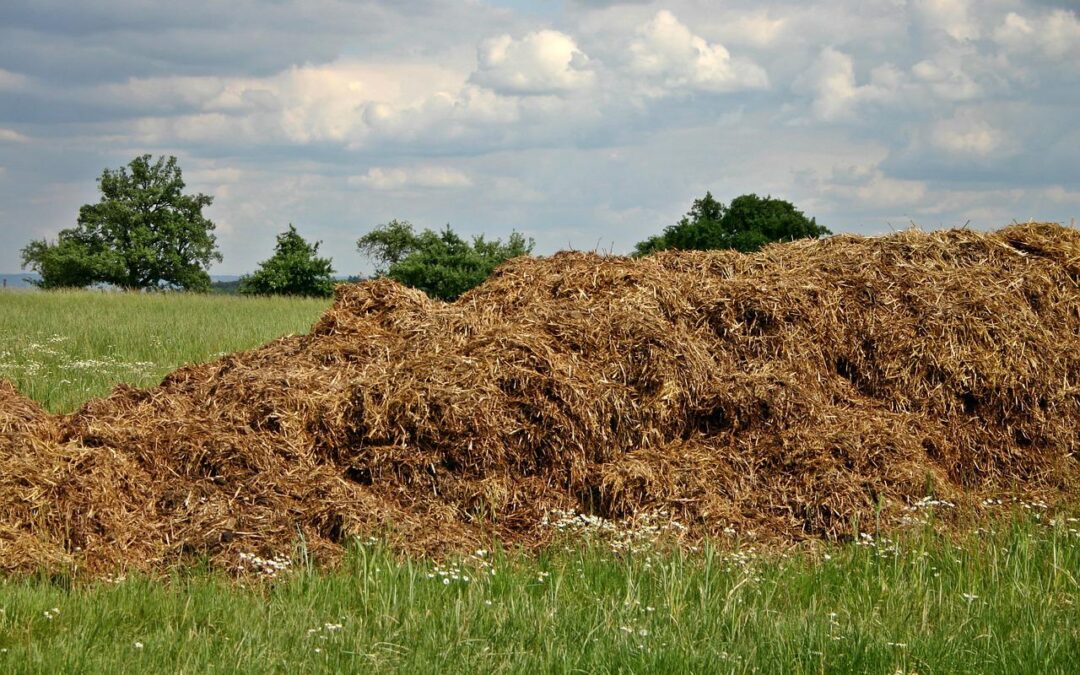As dog guardians we have all experienced our dogs eating less than desirable things when out and about on our walks, amongst these things that we would rather our dog didn’t eat is horse and livestock manure.
Ivermectin toxicity and is it as dangerous as we are led to believe?
You may have heard that it is dangerous to allow your dog to eat manure whilst out and about, because it can contain a chemical used in worming for horses and livestock called Ivermectin. Most breeds of dog that eat a small amount of manure will not become ill, but there is a risk of toxicity due to chemicals in worming medications which will be passed in the faeces, and for this reason dog guardians – particularly those with certain ‘at risk’ breeds (listed below) – should avoid letting their dogs consume it where possible.
Due to the much higher concentration levels of Ivermectin in horse and livestock worming treatments, it can be passed in the manure for days after the animal has taken the medication. This can be toxic to dogs that eat it, but the risk depends on the breed of the dog, when the animals were treated and the amount consumed.
Research testing horse manure for Ivermectin concentrations scientifically quantified the amount of the drug passing through a horse’s digestive tract and an important result of this research is that the level of Ivermectin in the manure peaks at 2.5 days following standard treatment and after 3 days, the amount Ivermectin passed through the manure is too low to cause a problem with your dog.
Does your breed of dog have a gene mutation that predisposes them to toxicity from low level Ivermectin levels?
Any dog that consumes a large amount of horse manure containing the chemical could become very ill, but a percentage of dogs of certain breeds have a gene mutation known as the multidrug resistance gene (MDR1) which predisposes them to toxicity from Ivermectin at low levels. When Ivermectin is used in affected patients, the drug is not excreted and hence builds up in the system, leading to toxicity. Breeds especially sensitive include;
• Smooth Coated Collie
• Rough Coated Collie
• Australian Shepherd
• Shetland Sheepdog
• Silken Windhound
• Miniature Australian Shepherd
• Long-Haired Whippet
• White Swiss Shepherd
• Border Collie
• Old English Sheepdog
• German Shepherd
• and possibly other herding breeds as well as those with white feet.
Ivermectin is commonly administered to dogs in the proper dose level to treat heartworm, sarcoptic mange and demodectic mange and as such most veterinarians will avoid using Ivermectin in these breeds, except for heartworm treatment, where the required dose is low enough to not cause toxicosis. A test for the gene mutation which puts dogs at high risk can be done so you can check whether your dog is at risk. Toxicity in breeds that don’t have the genetic predisposition to being affected by Ivermectin in low doses is very rare.
To give an idea of how much manure could cause toxicity a 27kg dog (not carrying the MDR1 mutation) would need to eat 13kg of manure which, I think you’ll agree, is beyond the capabilities of even the most hungry dog therefore the chances of toxicity are slim. Going by this math puppies and smaller breeds are at a high risk of suffering with Ivermectin poisoning.
What symptoms should we look for in toxicity cases?
Consumed in amounts sufficiently high enough to cross the blood-brain barrier, it can cause neurological symptoms, such as; dilated pupils, a lack of balance, disorientation, lethargy, vomiting, drooling and seizures. If you suspect that your dog is showing these symptoms after eating manure, you should seek veterinary guidance immediately. Without prompt veterinary attention, Ivermectin poisoning can be fatal. There is no antidote to Ivermectin toxicity, but with supportive veterinary care, most dogs will have a good chance of a full recovery. This will, of course, very much depend on the amount consumed and whether the dog is sensitive to Ivermectin.
How to avoid your dog eating manure out on walks
To avoid your dog from eating manure, early training to a ‘leave it’ command is vital and can be the only prevention you may need to stop your dog eating manure when out and about. However, those more determined scavengers, despite training, you can consider muzzle training.
Further Reading
The detail presented in this article was drawn largely from the following publications:
• Faecal Excretion Profile of Moxidectin and Ivermectin after Oral Administration in Horses
• The prevalence of ABCB1:c.227_230delATAG mutation in affected dog breeds from European countries
• White Feet Do Not Treat
• What’s the poop about dogs eating horse poop?

